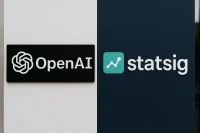Introduction
In the rapidly evolving landscape of employment, the traditional emphasis on academic degrees as the primary qualification for job candidates is being challenged. Increasingly, organizations are shifting towards skills-based hiring, where practical abilities and real-world experience are valued as much as, or even more than, formal education. This trend is reshaping recruitment strategies, workforce development, and the very definition of employability. This article explores the rise of skills-based hiring, the ongoing debate between degrees and experience, and the implications for job seekers, employers, and educational institutions.
The Traditional Value of Degrees
For decades, a college degree has been considered the golden ticket to career success. Employers have relied on degrees as a proxy for a candidate’s intelligence, discipline, and readiness for the workplace. Higher education institutions have, in turn, positioned themselves as the gatekeepers of professional opportunity. In many fields—such as medicine, law, and engineering—degrees and certifications remain non-negotiable due to regulatory requirements and the complexity of the work.
However, the degree-centric model has its limitations. The rising cost of higher education, coupled with student debt and underemployment among graduates, has led many to question whether a degree is always worth the investment. Read more about the value of a college degree on the U.S. Department of Education website.
Moreover, the rapid pace of technological change means that the knowledge acquired in a four-year program can quickly become outdated, especially in fields like information technology, digital marketing, and data science. See this Forbes article on the skills gap.
Moreover, the rapid pace of technological change means that the knowledge acquired in a four-year program can quickly become outdated, especially in fields like information technology, digital marketing, and data science. See this Forbes article on the skills gap.
The Emergence of Skills-Based Hiring
Skills-based hiring is an approach that prioritizes a candidate’s demonstrated abilities over their educational credentials. This method evaluates applicants based on their capacity to perform specific tasks, solve problems, and adapt to new challenges. Skills can be acquired through various means, including vocational training, online courses, bootcamps, internships, freelance work, and even self-directed learning.
Several factors have contributed to the rise of skills-based hiring:
- Technological Disruption: Automation and digital transformation have created new roles that require specialized skills, often not covered in traditional degree programs. Learn more about automation and the future of work from the World Economic Forum.
- Talent Shortages: Employers face difficulties filling positions that require niche or emerging skills, prompting them to look beyond degree holders. See SHRM’s research on skills shortages.
- Diversity and Inclusion: Skills-based hiring can help reduce bias and open doors for candidates from non-traditional backgrounds, promoting a more diverse workforce. Read about skills-based hiring and diversity at Harvard Business Review.
- Assessment Tools: Advances in assessment technology allow employers to objectively evaluate skills through tests, simulations, and project-based tasks. Check out this article on skills assessments from SHL.
Degrees vs. Experience: The Ongoing Debate
The debate between the value of degrees and experience is not new, but it has gained renewed urgency in the current job market. Proponents of degrees argue that formal education provides a broad foundation of knowledge, critical thinking skills, and a recognized credential that signals competence. Degrees can also serve as a filter in competitive job markets, helping employers manage large applicant pools
.On the other hand, advocates for experience-based hiring contend that practical skills and hands-on experience are better predictors of job performance. They argue that real-world problem-solving, adaptability, and continuous learning are essential in today’s dynamic work environment. Furthermore, experience-based hiring can help address inequities in access to higher education and create more inclusive opportunities.
The Middle Ground: Hybrid Approaches
Many organizations are adopting a hybrid approach, recognizing the value of both degrees and experience. For example, some companies have removed degree requirements for certain roles, instead focusing on skills assessments and work samples. Others offer apprenticeship programs, internships, and on-the-job training to help candidates build experience while learning.Tech giants like Google, IBM, and Apple have famously dropped degree requirements for many positions, emphasizing skills and potential over formal education.
Implications for Job Seekers
Build Your Career with In-Demand Skills
No degree? No problem. The rise of skills-based hiring means you can land high-potential roles by showcasing your abilities. Whether you’ve trained through online platforms, coding bootcamps, or certifications—your skills matter more than ever.
🔍 Find Skill-Based Jobs on WhatJobsHowever, job seekers must be proactive in showcasing their skills. Building a portfolio, participating in open-source projects, earning relevant certifications, and networking within the industry can help candidates stand out. Soft skills—such as communication, teamwork, and adaptability—are also increasingly important and should not be overlooked. Read about the importance of soft skills at WhatJobs Career Advice.
Implications for Employers
Employers benefit from a larger and more diverse talent pool when they adopt skills-based hiring. This approach can lead to better job matches, higher employee engagement, and improved retention. However, it also requires investment in new recruitment and assessment methods. Employers must develop reliable ways to evaluate skills, such as practical tests, case studies, and structured interviews. See WhatJobs Career-advice guide to skills-based hiring.
Additionally, organizations should foster a culture of continuous learning and provide opportunities for upskilling and reskilling. This not only helps employees stay relevant but also ensures that the organization remains competitive in a rapidly changing market.
Implications for Educational Institutions
Educational institutions are also affected by the shift towards skills-based hiring. To remain relevant, colleges and universities must adapt their curricula to align with industry needs and incorporate experiential learning opportunities. Partnerships with employers, internships, and project-based learning can help bridge the gap between education and employment.
Furthermore, institutions should recognize and validate alternative forms of learning, such as micro-credentials and digital badges. By embracing a more flexible and inclusive approach, educational providers can better serve the needs of both students and employers.
Conclusion
The rise of skills-based hiring marks a significant shift in the world of work. While degrees will continue to hold value in many fields, practical skills and real-world experience are becoming increasingly important. For job seekers, employers, and educational institutions alike, adaptability and a commitment to lifelong learning are key. By embracing skills-based hiring, organizations can unlock new talent, foster innovation, and build a more inclusive workforce for the future.




